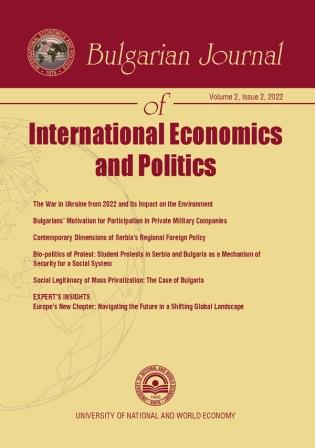Bio-politics of Protest: Student Protests in Serbia and Bulgaria as a Mechanism of Security for a Social System
Bio-politics of Protest: Student Protests in Serbia and Bulgaria as a Mechanism of Security for a Social System
Author(s): Magdalena TenderaSubject(s): Politics / Political Sciences, Politics, Government/Political systems, Welfare systems
Published by: Университет за национално и световно стопанство (УНСС)
Keywords: student protests; security; bio-politics; post-socialist transformation; Balkans; ethnography
Summary/Abstract: The research-based ethnographic study presented in the paper aims at explaining why the extensive student protests of the last decades in Serbia and Bulgaria do not facilitate the post-socialist transformation. Along with a high occurrence of political upheavals that commonly evoke images of mass unrest and swift social reconfigurations of power, no significant change in politics towards more democratic regime has taken place. Despite the presence of multiple liberal semantics in the public debate, the Balkan discourse on democracy seems fairly remote from the political and social practice. All the well established theories of protest and social movements remain inconclusive in answering this query. In search of an explanation, the concept of security and the bio-political paradigm of Michel Foucault have been adopted. The distinctive conceptual framework helps to explain how protests became a kind of security mechanism preventing an unstable social system from radical changes. Based on that concept the anthropological investigation allowed to identify some systemic milestones, or structural dimensions, bringing some counterintuitive results when it comes to the assessment of key social functions of protest, and a rather expected disclosure of deep authoritarian settings of governing institutions. Finally, the article discusses some similarities between the contentious events in Serbia and Bulgaria, and how the private stories recorded during in-depth interviews conducted between 2014 and 2017 in Belgrade and Sofia combine into one legitimate public narration on the Balkan political issues.
Journal: Bulgarian Journal of International Economics and Politics
- Issue Year: 2/2022
- Issue No: 2
- Page Range: 51-71
- Page Count: 21
- Language: English

